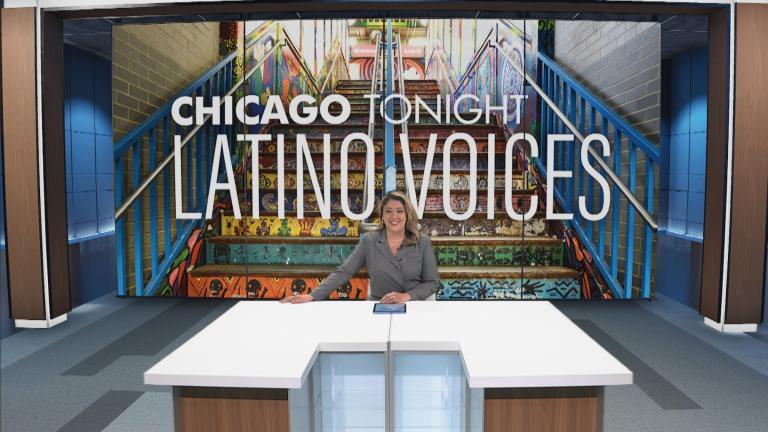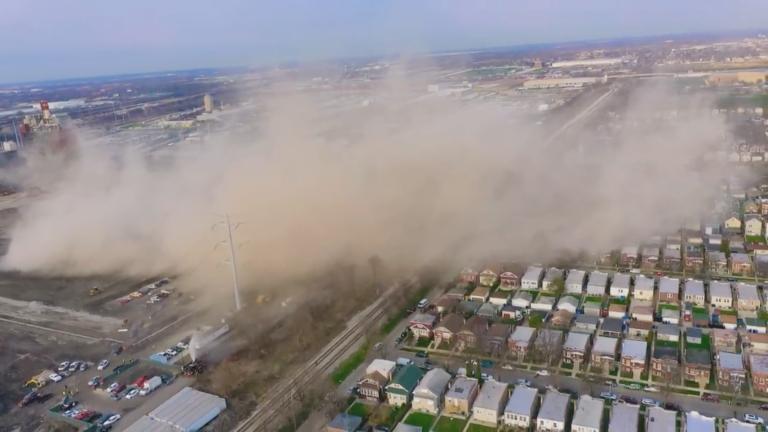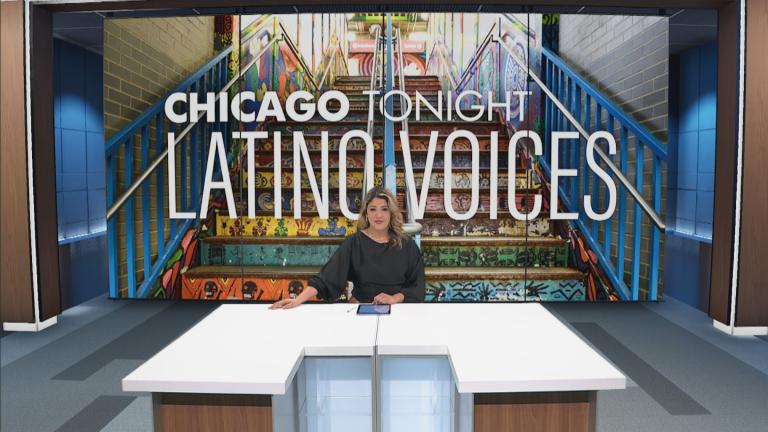From the moment the first bus of migrants arrived a year ago, much of the ongoing work of supporting migrants has been done by volunteers, mutual aid groups and community organizers who swung into action, providing food, shelter, health care and legal aid for the new arrivals while also coordinating with local officials.
Graciela Guzman was chief of staff in the 20th District state senator’s office when the first bus of asylum seekers arrived. She said the past year has been “a whirlwind.”
“I remember those initial experiences with community members starting to come to our office, seeking constituent affairs, seeking help getting the CityKey, trying to locate where their nearest school was, trying to understand pantries and other systems around them,” Guzman said. “So I think for us that was the eye-opener about the community of care that is really needed to excel around each one of our asylum seekers that is just trying to find their way around the basic resources that they deserve. We need to dignify the ability to eat, the ability to have a place to call home, the ability to have quality health care and to have a communication that makes that seamless for them.”
Grace and Peace Community Church was one of the first churches to welcome asylum seekers.
“We’re still in trauma, we’re still dealing with folks that are coming in with heavy cases, and it feels like it’s still triage,” Pastor John Zayas said. “It feels like it’s still one after the other; there’s no time to breathe. I would say it’s very difficult for any administration to deal with this, especially trying to find some time to really focus and build up. And so I think that when Mayor Lightfoot was there, we were dealing with buses just coming in and we’re just kind of band-aid kind of work. I think the fact that with Mayor Johnson, he’s taking another step further and trying to help folks in housing and those types of things. But I still think we’re in trauma stage. I still think that we’re still dealing with issues that we dealt with eight months ago.”
Immigration attorney Paula Roa began volunteering in spring 2023, and over time began offering legal aid workshops. She recently started offering what she calls “unbundled” legal assistance to immigrants.
“I think right now, one of the biggest problems I would say is legal triage,” Roa said. “They need to be able to do basic things in their legal case and understand about their legal case in order to even move forward for their asylum case.”
On the Southwest Side, Enrique Mendoza also began volunteering in the spring of this year with 4 Soles Colectivo Chicago. He said he was inspired to help because of his own family’s immigrant roots.
“What I see a lot is, like, the stories like my parents told,” Mendoza said. “And when my parents told me that they came here and they had nothing or nobody to help them out, I wanted to be that person, and I’m sure, like, a lot of the mutual aid organizers that are working around the clock to make sure that the these people have their basic needs. We all want to be those people that we just didn’t have when we first came here. So that’s a major reason for me, right? And also just because folks just deserve to be to have access to … basic housing, health care, food. I mean, we’re just talking about basic humanity here.”
Thousands of migrants have been temporarily housed in police stations, which has presented difficulty for police operations and led to reports of mistreatment of the asylum seekers. Guzman acknowledged that the police stations are an imperfect emergency response, and it is necessary to begin shifting from an emergency mindset to a longer-term outlook for shelter.
“The reality is that police stations are not dignified homes for anyone,” Guzman said. “That’s not their intent and purpose. And the ultimate North Star that we need to look to as a city is how do we achieve dignified housing for folks? Because at the end of the day, these police stations are not it. So I think for me, when I think about what is radically changing is our present. It means shifting out of the emergency response that we have. It means … fighting for resources and making sure that we are funding the response that is needed, that we are sensing dignity and humanity, that we are asking and requesting and receiving the federal resources that allow us to respond to what is occurring in our city in this moment. And then ultimately that we’re preserving the self-autonomy that our families deserve.”
Roa said part her rationale for starting her own firm is that she sees an unmet need offering simpler legal assistance earlier in the migrants’ settlement process for lower cost that will save hours of unraveling later on.
“I am a career nonprofit attorney,” Roa said. “I understand that there’s a shortage of immigration attorneys, much more that there’s a shortage of nonprofit immigration attorneys. And funding is always an issue. However, there are legal needs that need to be met that are quick to do, and that also require smaller things to be able to accomplish a bigger goal. … And this is going to require two things: collaboration from city partners and community-based organizations. People accomplish that.”
Ultimately, the most urgent need for the migrants is legal permission to work, said Zayas.
“I guarantee you if you announce that and they could work,” Zayas said, “the city would relieve the stress of everything else that we have.”








